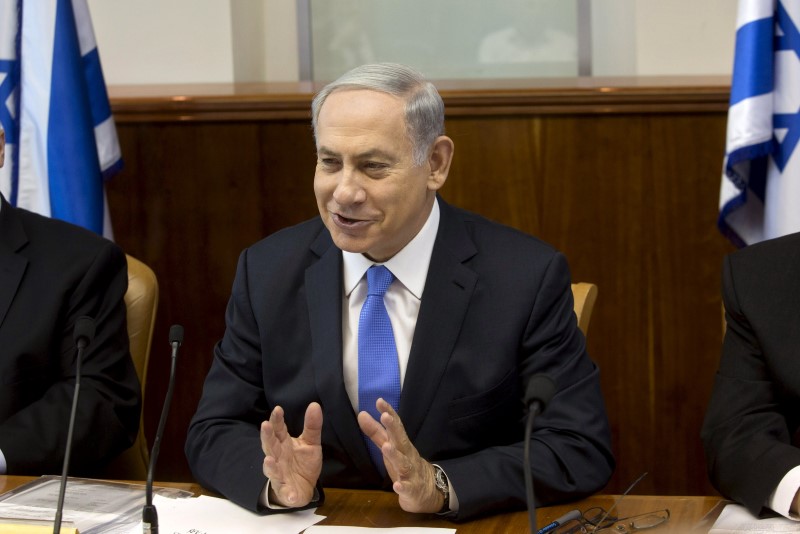By Dan Williams
JERUSALEM (Reuters) - Prime Minister Benjamin Netanyahu flew to Moscow on Monday to seek reassurance from President Vladimir Putin about Russia's military deployment in Syria and to lay out Israel's concerns about the risk of weapons reaching militants on its borders.
With fighter planes part of the rapid Russian build-up, Israel is worried about the threat of fire accidentally being traded with Russian forces, especially since it has carried out air raids against militants in southern Syria and Lebanese Hezbollah fighters suspected of smuggling arms.
A former strategic adviser to Netanyahu said the Israeli leader would try to work out "ground rules" with Putin about avoiding such clashes.
The United States, which along with its allies has been flying missions against Islamist State insurgents in Syria, has also been holding so-called "deconfliction" talks with Russia.
"It could come down to Israel and Russia agreeing to limit themselves to defined areas of operation in Syria, or even that they fly at daytime and we fly at night," said the ex-adviser, who spoke on condition of anonymity.
Among Israel's concerns is that Israeli warplanes could come up against Russian-operated anti-aircraft systems or even Russian-flown jets.
RUSSIAN HARDWARE
Netanyahu took along top Israeli generals for his talks with Putin, who is trying to prop up Syrian President Bashar al-Assad against an Islamist-led Syrian insurgency in its fifth year.
That top-of-the-line Russian military hardware may now be deployed in Assad's favour has stoked concern his ally, Hezbollah, could also benefit. That Russians might be at the controls of these systems gives Israeli planners further pause.
Sources close to Netanyahu said he would present Israeli intelligence accounts of past transfers of arms, some of them Russian-supplied, to Hezbollah, and seek reassurances Moscow would maintain control of its latest reinforcements.
"What's important is Putin's commitment not to get mixed up in arming Hezbollah, which should help Israel, if it goes in there, to keep a safe distance from the Russians. It is pretty clear that Putin is not looking for a fight with Israel," Netanyahu's former adviser said.
Putin has pledged to continue military support for Assad, assistance that Russia says is in line with international law. Russia has been focusing forces on the Syrian coast, where it has a major naval base.

The Kremlin has said Putin and Netanyahu would discuss "the relevant issues of bilateral cooperation and international agenda" during their meeting in the president's residence in Novo-Ogaryovo, near Moscow.